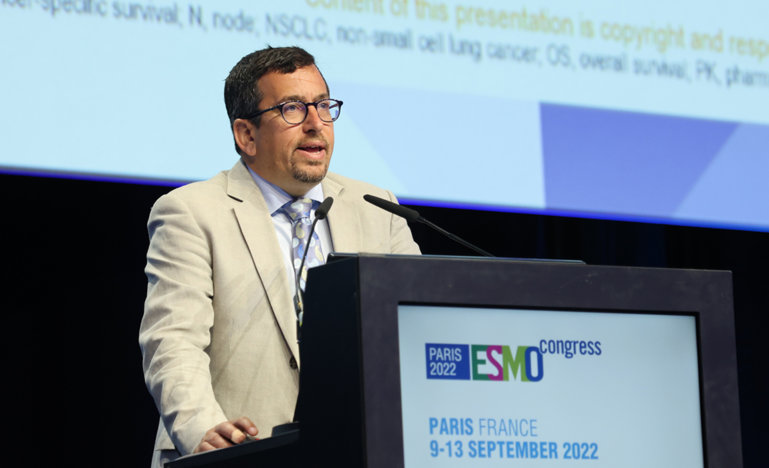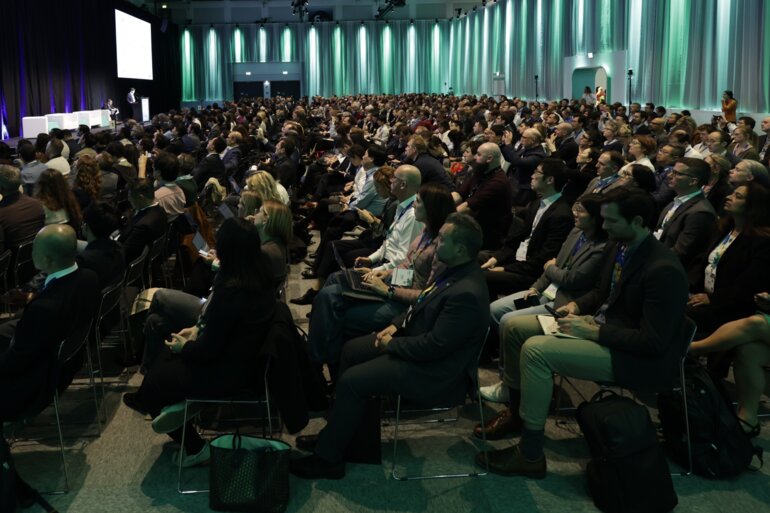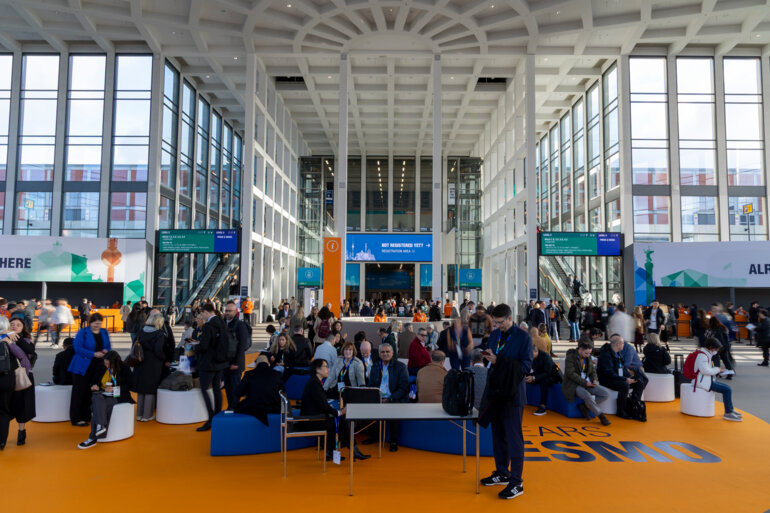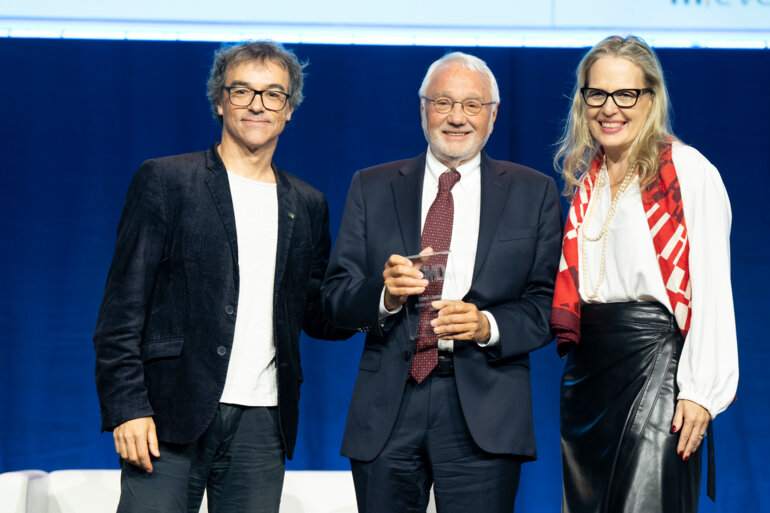Negative results from the CANOPY-A trial do not support use in the adjuvant setting
No improvement in disease-free survival (DFS) was shown with adjuvant canakinumab, an anti-interleukin 1β antibody, in the CANOPY-A trial in patients with non-small-cell lung cancer (NSCLC), as reported at ESMO Congress 2022.
The phase III CANOPY-A trial evaluated canakinumab (200 mg), as adjuvant therapy in patients with completely resected NSCLC who had received adjuvant standard of care (cisplatin-based chemotherapy and thoracic radiotherapy) (LBA49). At the March 2022 data cut-off (median time from randomisation 18.9 months, range 2.8–47.2 months), the primary endpoint of DFS was not met; median DFS was 35.0 months with canakinumab versus 29.7 months with placebo (hazard ratio 0.94; 95% confidence interval 0.78–1.14; p=0.258). No new safety signals were identified, with grade ≥3 adverse events reported for 20.8% and 19.6% of patients in the canakinumab and placebo arms, respectively. On-treatment deaths occurred in 1.3% of patients receiving canakinumab and 2.3% of patients receiving placebo.
The results from the CANOPY-A trial of canakinumab in the adjuvant setting add to previous negative findings with canakinumab in the metastatic setting reported in the phase III CANOPY-1 trial (Cancer Res. 2022;82(Suppl. 12):CT037). Commenting on these developments, Enriqueta Felip from the Vall d'Hebron Institute of Oncology, Barcelona, Spain, says, “I think it is clear that canakinumab is not showing any clinical benefit after chemotherapy in the adjuvant setting. There have been many encouraging trial results in the treatment of resected NSCLC, with improvements in DFS reported in the phase III ADAURA trial with osimertinib versus placebo in patients with completely resected EGFR-mutated NSCLC (N Engl J Med. 2020;383:1711–1723). An update of these results will be presented at ESMO Congress 2022 (LBA47). Also, the KEYNOTE-091 trial of adjuvant pembrolizumab versus placebo and the IMpower010 trial of adjuvant atezolizumab in completely resected NSCLC demonstrated improvements in DFS with immunotherapy (ESMO Virtual Plenary 2022; Ann Oncol. 2022;33(Supp. 2):S71–S78, Abstract 800). In the neoadjuvant setting, positive event-free survival results with nivolumab plus chemotherapy in patients with resectable NSCLC have been observed in the phase III CheckMate 816 trial (N Engl J Med. 2022;386:1973–1985). The results of further studies of adjuvant immunotherapy and neoadjuvant immunotherapy plus chemotherapy in the early-stage disease setting are awaited.”
Describing the ongoing unmet needs in these patients, Felip concludes, “Firstly, we need to improve the selection of patients with NSCLC who are candidates for adjuvant strategies. We need to identify markers for immunotherapy benefit beyond PD-L1. Optimising treatment approaches for patients with advanced NSCLC who have received prior treatment with immunotherapy is a further key goal of research.”
Abstracts presented:
Garon EB, et al. 4922 CANOPY-A: Phase III study of canakinumab (CAN) as adjuvant therapy in patients (pts) with completely resected non-small cell lung cancer (NSCLC). ESMO Congress 2022, LBA49
Proffered Paper Session – Non-metastatic NSCLC and other thoracic malignancies, 11.09.2022, h. 08:30 – 10:00, Brest Auditorium
Osimertinib as adjuvant therapy in patients (pts) with resected EGFR-mutated (EGFRm) stage IB-IIIA non-small cell lung cancer (NSCLC): Updated results from ADAURA. ESMO Congress 2022, LBA47
Proffered Paper Session – Non-metastatic NSCLC and other thoracic malignancies, 11.09.2022, h. 08:30 – 10:00, Brest Auditorium






